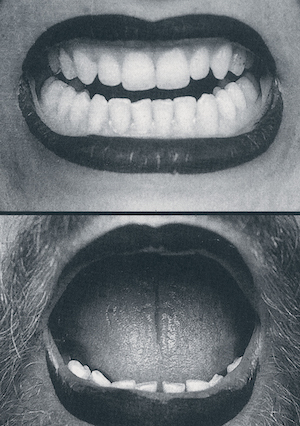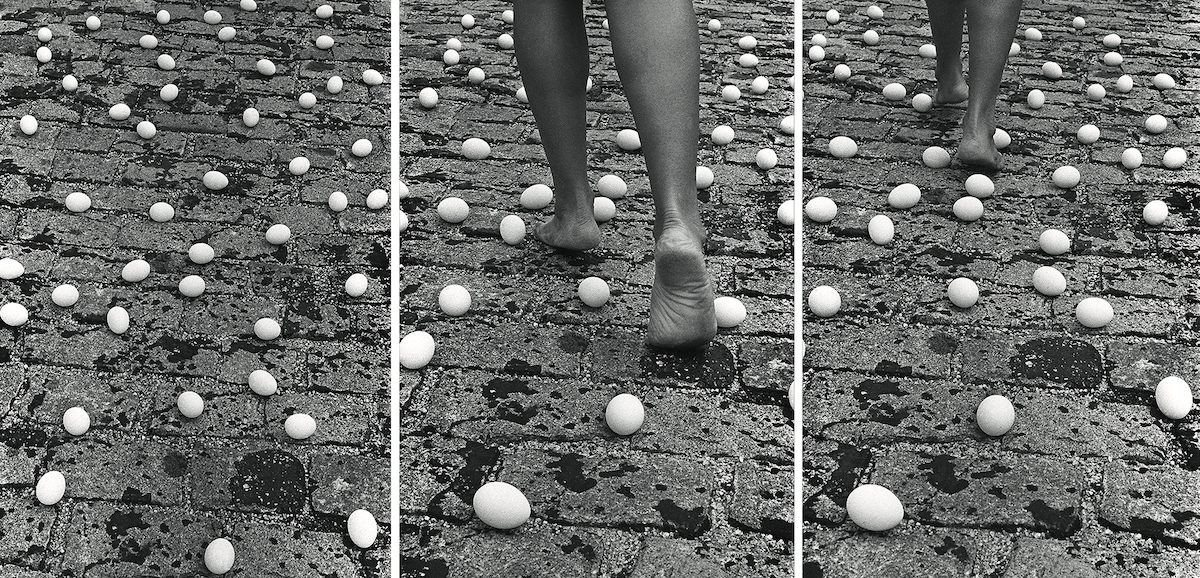
Anna Maria Maiolino is a self-declared nomad of the art world – working with sculpture, sound, video, painting, performance and photography.
And her retrospective exhibition, Making Love Revolutionary, brings all these art forms together. She takes over two floors of the Whitechapel with her work created throughout her long and tumultuous life.
She frequently takes inspiration from her experience as an immigrant coming of age under Brazil’s military dictatorship and chronicles over sixty years of political, personal and cultural shifts through this massive collection of work. She’s even created a fair number of pieces just for this show. You’re taken on a journey through her life and art in reverse, starting with her most recent creations. Curators have placed Maiolino’s sculptures amongst her other works on paper.

In-Out (Antropofagia). Photo by Max Nauenberg
You’ll wander about her clay creations symbolising traditional women’s labour such as kneading bread and housework.
These clay sculptures are unfired so will slowly dry out, crack and crumble over time, just as she hopes what they represent will eventually die – that is the traditional oppressive role of women in society.
In this space, there are also many works which aren’t charged with such pin-pointed meaning. Maiolino describes a lot of her process as natural. She doesn’t think too much about the form she is trying to create, but cares more about the process.
What she creates sends up being something no one could imagine up – it comes from just doing. This process is often controversial in and of itself.
The end product of her drawings and paintings are open for interpretation. You’re invited to make up your own conclusions.
As you move throughout the exhibition, you go back in time to the ’70s and ’80s during which she experimented a lot with film and performance. Created under the Brazilian military regime, they explore oppression and hunger.
It’s a bit off putting, at first, to watch people’s mouths up close, but you get to see how the state controlled what we can and want to do with them – especially women.
This all works in dialogue with her other installations and creations. And end with Maiolino’s seminal performance work Entrividas (1981) in which bare feet tread carefully amongst scattered eggs. It is a literal manifestation of walking on eggshells where a carpet of fragile eggs becomes a minefield.

It represents a fractured Brazil trying to come back together and make what they can with democracy. Rebuilding was a difficult process after years of oppression.
The egg, which Maiolino likens to a very primal form or beginning recurs in the final gallery space – becoming what seems a symbol of love and regeneration.
She has hope for the future, but it is delicate and can easily be broken. Peace and love can be seen as fragile things in need of careful nurturing.






